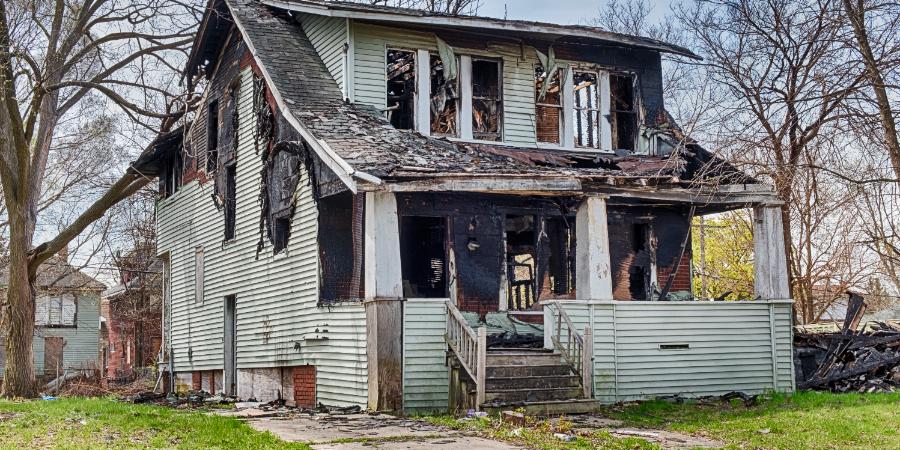
Zombie Alert! Whiteman Zombie Property Enforcement Practice Secures Over $4M in Civil Penalties for New York Municipalities
Over the last three years, Whiteman Osterman and Hanna attorneys Thomas Shepardson and T.J. Ruane have brought dozens of lawsuits against some of the nation’s largest mortgage lenders and servicers on behalf of several New York State municipalities under the State’s Zombie Property Law (New York Real Property Actions and Proceedings Law §1308, et seq.). Their efforts have resulted in court orders and judgments requiring these lenders and servicers to remediate, and in a few instances demolish, over 30 vacant and abandoned residential properties in these municipalities and assessing in total over $4M in civil penalties.
Due to the success of their efforts, in 2021, Mr. Shepardson and Mr. Ruane were approached by three of the State’s largest cities to assist in a collective enforcement effort against a single mortgage loan servicer for violations of the Zombie Property Law. A total of 19 separate properties were identified across the three municipalities. Within a few months of filing the first lawsuit, Mr. Shepardson and Mr. Ruane were able to successfully obtain court orders requiring the mortgage loan servicer to secure, remediate, and maintain the properties and pay a total of $844,500 in civil penalties to the three municipalities.
What is the New York State Zombie Property Law?
Enacted in 2016, the Zombie Property Law placed an affirmative duty on first lien mortgage holders (i.e., banks and lenders) and mortgage servicers to inspect, secure, remediate, and maintain vacant and abandoned one-to-four-family residential properties stuck in the foreclosure process – i.e., “Zombie Properties.” The law is aimed at addressing the negative impacts caused by Zombie Properties including (i) consumption of municipal resources (code enforcement and building department resources, notices, and inspections; police and emergency services responding to complaints; boarding and cleaning up properties, etc.); (ii) decreasing neighborhood market values; (iii) negative impacts to economic development; and (iv) posing a risk to human health and public safety. These impacts can range from a simple eye-sore (such as an overgrown lawn and vegetation) to properties that pose more serious and immediate threats to public health and safety (including those that may be susceptible to catastrophic fires, or even collapse).
Prior to (and in a lot of cases, even after) the Zombie Property Law, many municipalities struggle(d) with addressing Zombie Properties. Some of the issues municipalities face include:
- lack of information regarding Zombie Properties – many municipalities do not have the information necessary to identify the number or location of the Zombie Properties within their jurisdiction;
- lack of information regarding the responsible party – Zombie Properties are vacant and abandoned properties by definition; thus, it is often almost impossible to get in contact with the responsible party, who, prior to the enactment of the Zombie Property Law, was the homeowner; and
- rapid property deterioration – Zombie Properties can deteriorate at a rapid pace, especially during winter months, rendering the properties less and less desirable and, thus, less and less marketable.
In addition to requiring lenders and servicers to inspect, secure, remediate, and maintain the vacant and abandoned properties during the foreclosure process, the Zombie Property Law authorizes municipalities to enforce violations of the law against the lenders and servicers in court and, as noted above, seek the imposition of potentially substantial civil penalties and other remedies. Under the Zombie Property Law, all civil penalties assessed and collected are retained by the municipalities. In many instances, these civil penalties are re-injected back into the municipality’s Zombie Property enforcement efforts (i.e., inspectors, program costs, legal fees, etc.).
What are some other tools available to municipalities?
In addition to the Zombie Property Law, there are several other tools that municipalities may use to address Zombie Properties, such as proceedings to obtain title to vacant and abandoned residential properties; proceedings to obtain title to vacant and abandoned commercial properties (currently awaiting signature of the Governor to be enacted); proceedings to compel expedited bank/lender foreclosures; and expedited tax foreclosure proceedings.
“Zombie Properties pose significant issues for municipalities large and small across the State. In many instances, these properties can linger in the foreclosure process for years while they continue to deteriorate, further exasperating the problem. All municipalities should understand the tools available to them to combat Zombie Properties. Tom and I really enjoy this work and hope to continue to help more municipalities impacted by these issues.” - T.J. Ruane.
For more information on this subject, contact Tom Shepardson or T.J. Ruane.

